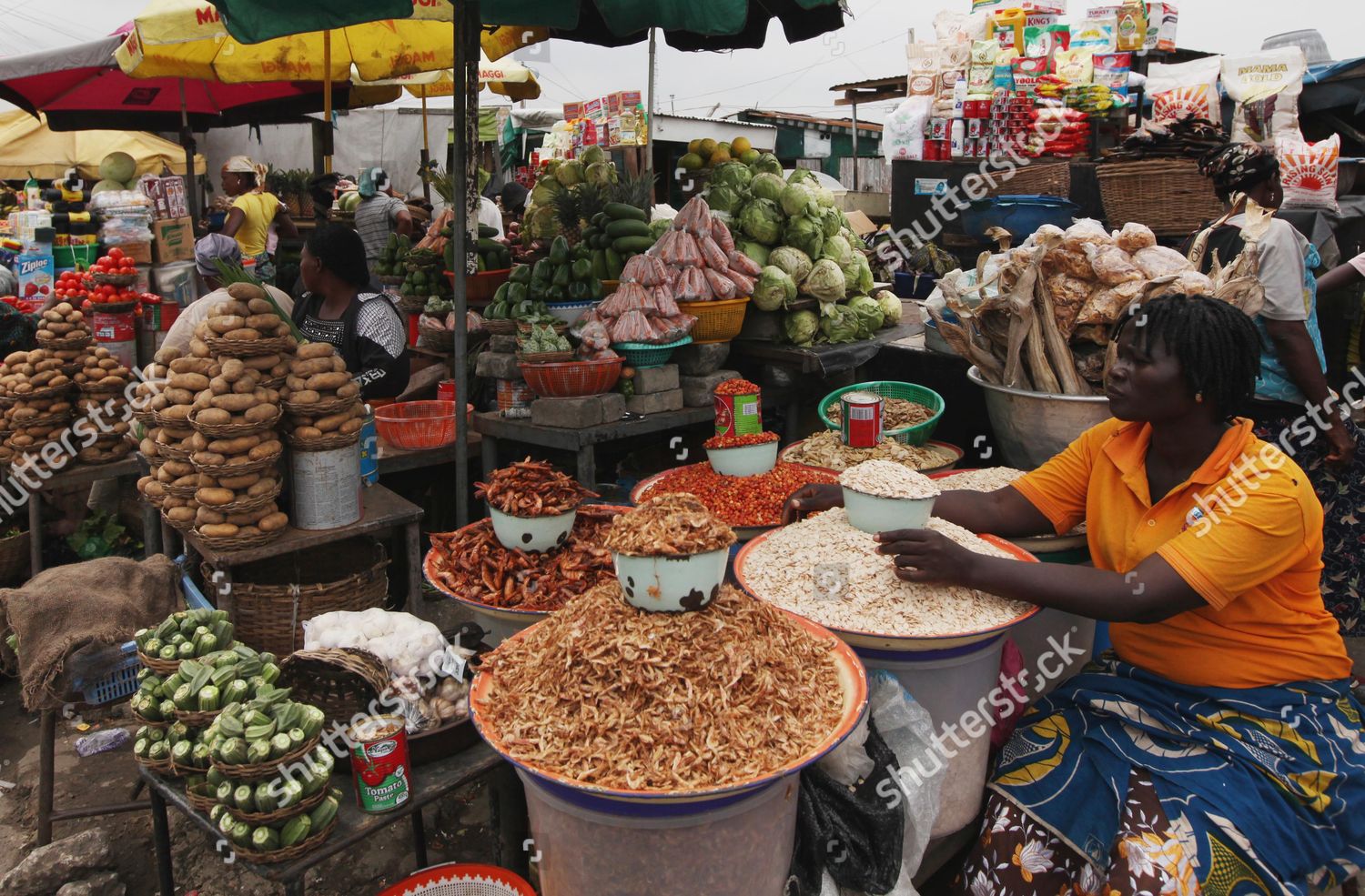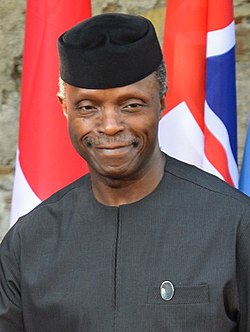High Inflation In Nigeria , Rising Food Prices

Rufiyat Audu’s small restaurant in Nkangbe community of Bosso local government area in Niger state in Northern Nigeria has three wooden tables and six long benches that can seat four people. It’s built with zinc and has no fan or any electrical appliances. She began the restaurant in 2021 after trying to hawk plastics and coolers, which only pushed her further into debt.
Rufiyat, popularly called ‘Mama Ruka’, said she began the food business because she was told that there would be some profit for her and her family to pay for some daily needs, including feeding.
But recently, Mama Ruka is finding it difficult to realize any profit due to the increasing rate of foodstuffs in the market. Her customers don’t understand why they are now getting a smaller portion of food for the same price.
“It is very difficult to keep up”, Mama Ruka said in Pidgin English. “Before you came, I just returned from the market. I bought beans N800 for a mudu (a measurement for foodstuff in the north). Unlike people who buy in bags, I don’t have enough to buy in bags, so I mostly buy in mudus.
“This was the same beans I bought last week (last Monday in March) for N750. As of January, I still sold N70 beans but now, it is N100 which is two spoons and my customers are complaining.
If it continues going up, I will have to increase the amount for the beans because it is from the same beans I sell that I remove the money for pepper, oil, tomatoes, and seasoning which I use for the stew. It has not been easy. Things just dey go up every day”, she lamented.
Like Mama Ruka, many other Nigerians are battling to keep up with the increasing cost of foodstuffs and other essential needs.
Adesola Animashahun, a care assistant in Lagos, says the situation is making it difficult for her and many others to buy all the foodstuffs they want.
“Each time I go to the market, the prices keep increasing and when we ask why, the sellers say dollar exchange rate has increased. They tell us they are selling the way they bought the goods,” Animashanun explained.
“Uncooked rice which used to be sold for N2,100 now sells for N2,700. Groundnut oil was N700 a measure, but it’s now N1,000 plus. Even only the rich can afford yams now. The price of a tuber has jumped from N800 to about N1,500.
The National Bureau of Statistics (NBS), in its “Selected Food Prices Watch ” for February 2022, reflected a rise in several foodstuffs in all parts of the country.
According to the NBS’s data, the average price of 1kg of beans (white and black) rose on a year-on-year basis by 50.1%, from N331.48 in February 2021 to N497.54 in February 2022, while it increased by 3.34% on a month-on-month from N481.47 in January 2022 to N497.54 in February 2022.
The NBS projected prices, however, are lower than the present market value of foodstuffs.
According to NBS data, the average price of 500g of sliced bread, a major staple in many homes, increased year-on-year by 34.11%, from N326.61 in February 2021 to N438.03 in February 2022.
Various factors, including the COVID pandemic, insecurity, weak economic policies, global economic trends and the on-going Russia/Ukraine war are believed to be responsible for the price increases, with no sign of reduction as the inflation in the country bites harder.
Although Nigeria has gradually recovered from the impact of the COVID 19 pandemic, many sectors, including the food supply chain, still retain the high cost of goods and services due to the closure of the economy and loss of profits.
How the War in Ukraine will affect the prices of foodstuffs
There is an indication that the increase in price of foodstuffs may continue to rise due to the war between Ukraine and Russia.
Those two countries are important players in the global food export market. According to the ONE Campaign, Russia and Ukraine supply 30% of the world’s wheat and 24% of its barley.
The Director General of the World Trade Organisation (WTO), Dr Ngozi Okonjo-Iweala, warned on April 2nd, 2022, that Nigeria and other African countries may face food crises due to the war in Ukraine.
According to her, in many African countries (including Nigeria), food prices have risen by 20%.
In an exclusive interview with BBC World Service, the Director General explained that Russia is the biggest exporter of fertilizers, wheat and maize and the war has impacted exports of these products.
Nigeria will suffer from this because the country imports 27% of its wheat from Russia and 4% of its wheat from Ukraine.
This development has put Nigeria’s food supply under some pressure. As Okonjo-Iweala noted, the prices of wheat and maize increased by 62% and 36% respectively after the war started.
She also noted that the price of soya beans has inflated by 29% while noting that the cost of purchasing fertilisers globally has gone up by 300% because of the ongoing war.
Nigeria’s Minister of Information and Culture, Alhaji Lai Mohammed in March said the increase in prices of some foodstuffs, petrol, diesel and other items is a global trend, and not limited to any country.
The World Bank is forecasting further price increases for foodstuffs, including a 42.7% increase in wheat prices and a further 20% increase in the cost of soya beans.
Insecurity
While noting that the global pandemic is also a factor for the sharp high cost of food items in the country, the National President of the All Farmers Association of Nigeria (AFAN), Kabir Ibrahim, said insecurity has prevented many farmers from accessing their farms thereby inhibiting otherwise optimum production, which has contributed to the insufficient supply of food items.
According to him, insufficient food supplies could lead to famine and instability, which if allowed to persist could cause political turmoil that destabilizes the whole nation.
High exchange rate
Prince Wale Oyekoya, an agriculturist and the CEO of Bama Farms Limited, lamented the high dependence on importation of some food items at high exchange rates instead of boosting local production.
He said the government must realize that a nation that cannot feed itself is not worth being called a nation. “We call ourselves the giant of Africa, now all the other small countries especially in West Africa are feeding Nigeria, especially through the Cotonou through Ghana and through Togo, this is an abomination in the olden days.”
Marcel Okeke, former Chief Economist of one of Nigeria’s top banks, Zenith Bank, said that while government officials may attribute the increase in the cost of foodstuffs to the impact of the pandemic, the major factors for the increase are insecurity and high foreign exchange rates due to the low value of the country’s currency.
“Our naira is dead, so because of that whatever any person is importing he or she will spend so much importing it and when it comes here the person will be asking for an arm and a leg to cover the expenses,” Okeke noted. “The government propaganda that we are already producing so much of some food items is not true. It is the clear indication of those massive importation of
those food items that drives up the prices of the variety in the market. And it is what is in the market that the bureau of statistics will reflect not the claim of government.”
This piece was produced in partnership with the ONE Campaign, a global campaign and advocacy organization. For more information on the impacts of conflict, climate change, and COVID’s impacts in Africa, subscribe to ONE’s Aftershocks newsletter or explore the data.






